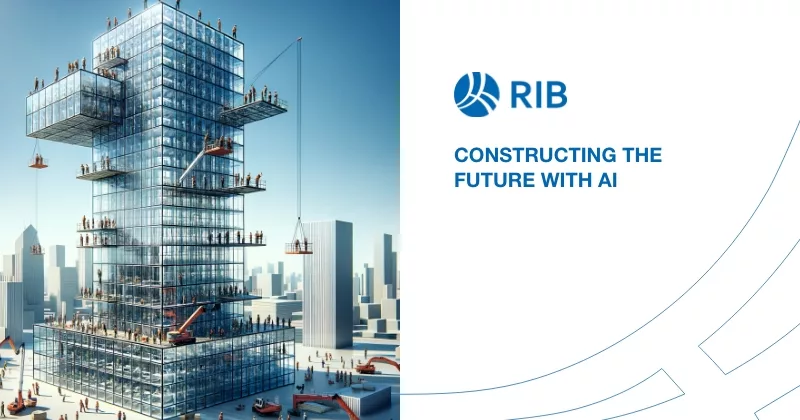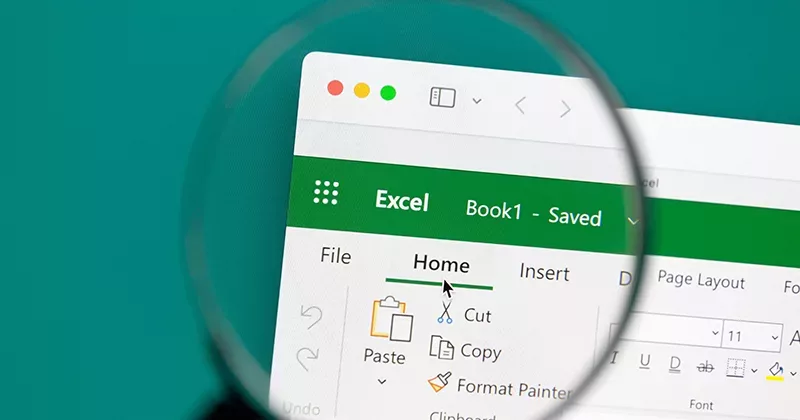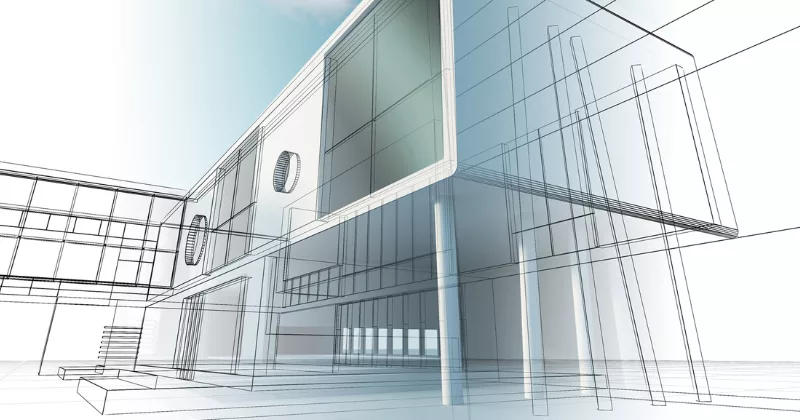10 mins read
Managing Construction Budgets To Ensure Success

- What is a Construction Budget?
- Construction Budget Management Roles
- Types of Costs in Construction Budgeting
- What Are the Benefits of Construction Budget Management?
- Tips for Efficient Construction Budgeting
- Common Construction Budgeting Mistakes to Avoid
- What can Professional Construction Budget Management Software do for You?
- Final Thoughts
Budgeting is a critical part of any construction project. An accurate and effective construction budget ensures all anticipated expenses are covered to meet project timelines. As projects grow in scope and complexity, professional construction cost management software and budget management practices make it easier for project managers and builders to create effective budgets and stay on track throughout the project lifecycle.
In this blog post, we review the concept of construction budget management, the various roles involved in the process, and some of the important benefits. We also provide some useful tips to help manage budgets more effectively and incorporate the latest software tools.
What is a Construction Budget?
A construction project budget is a financial plan describing all the expected project costs, their type, and when they will be payable. A detailed upfront analysis is required to create a realistic budget based on the scope of work, design, and current cost of project elements.
The elements include:
- Machinery and equipment
- Licenses and permits
- Civil engineering fees
- Construction labor costs
- Materials and transportation
In addition to these expected material and labor costs, construction budget control practices must also account for unplanned expenses due to rework, project scope changes, labor shortages, and other less predictable factors. A well-executed budget provides a baseline for project managers, contractors, and other stakeholders to help keep their spending aligned with expectations throughout the project lifecycle.
Construction Budget Management Roles
To ensure a construction budget is accurate and comprehensive, many individual team members must contribute to the process and provide their feedback throughout the project. The primary roles in budget management include:
Client
The client plays an essential role in construction budgeting, since they are responsible for securing and allocating the funds for the project. This means they must also approve of the project scope and objectives to ensure they are aligned with their financial expectations. With a vested interest in the project outcome, the client usually takes an active role in decisions like contractor selection and change management that directly impact the budget, and will determine when budget variances can be tolerated.
Project Manager
The construction project manager also plays a central role in developing and maintaining a budget for construction, since they are often given the primary responsibility for planning, monitoring, and controlling costs throughout the project lifespan. As they transform construction estimates into resource allocations for materials, labor, and equipment, they must work closely with other stakeholders to ensure the budget is accurate, and all direct and indirect costs have been considered.
Construction Estimator
While the client decides how much they are willing or able to spend on a project, the role of the construction estimator is to accurately forecast project costs to ensure the total remains within the predetermined limits. In some cases, a preliminary estimate during the earliest stages of the project will determine that overall budget expectations were not realistic, and adjustments to either the design, location, budget or timeline were necessary.
The construction estimator works with drawings, 3D design files, specifications, and other inputs to perform quantity takeoffs and create detailed cost breakdowns to ensure the completed budget will encompass all project costs.
Design Team
Construction architects and engineers who design a building or structure also play an important role in construction project budgeting, since each decision they make regarding materials, sustainability, building methods, and design features directly impacts the budget.
Building information modeling (BIM) platforms and takeoff & estimation software help to convert design options into cost information more efficiently, so that designers can evaluate the impact of each alternative on the budget. This also applies to any design or scope changes incorporated at later stages of the project, since new additions and concepts often require mid-stream budget adjustments.
Contractors & Subcontractors
It is up to the general contractor to carefully track expenses, manage material and labor issues, and conform to the project plan to ensure the project stays on budget. Contractors also contribute to cost control by negotiating fair agreements with subcontractors and carefully monitoring their progress.
Subcontractors representing many skilled trades also play an important role in construction budget management by managing costs within their specific area of expertise and adhering to the agreed-upon contract terms. Cost overruns or delays for a specialized task can cause a ripple effect that impacts the entire budget.
Types of Costs in Construction Budgeting

To frame the concepts of construction budget management, it is useful to describe the various types of expenses that must be considered. The budget breakdown usually fits within a few general categories.
Indirect Costs
Indirect costs, often called overhead costs, include rent, utility fees, insurance, and other expenses that are not directly linked to a specific project but still must be accounted for. Keeping indirect costs in check is one of the best ways to maintain profit margins.
Direct Costs
Direct costs are more straightforward and visible since they include expenses incurred for anything that directly converts into project deliverables. Materials, heavy equipment, and contractor labor are among the direct costs common to almost all construction budgeting processes.
Fixed Costs
Fixed costs include engineering fees, permits, and land acquisition costs that remain constant regardless of the project’s scope and duration. This type of cost might also be spread across multiple projects. An example would be leased equipment that is shuttled between unrelated job sites depending on the need.
Variable Costs
As the name suggests, this category includes expenses that change throughout the project lifespan, such as materials, overtime wages, and heating costs. Estimating and controlling variable costs is another key to successful construction project budgeting. Planning and foresight are needed to accurately account for expenses that are likely to fluctuate and prevent budget overruns.
Contingencies
Contingency funds differ from variable costs since they are set up to absorb project expenses that could not have been fully anticipated and planned for. Issues like supply chain failures that significantly increase material costs, inclement weather that halts progress, or major equipment malfunctions fall into the contingency category.
Since the exact nature and scope of contingencies can never be fully predicted, allocating five to ten percent of the overall project budget for contingency funding is considered wise practice.
What Else Is Included in a Construction Budget?
The construction budgeting process requires careful review and analysis to ensure all expenses are considered. Construction budgeting software and templates make it easier to capture and organize this information. In addition to property, materials, labor, and equipment costs, the budget might also include indirect items like insurance premiums, utilities, taxes, and professional fees for design, project management, and consulting support.
What Are the Benefits of Construction Budget Management?
No construction project can be executed without a budget, but taking the time needed to complete a detailed construction budgeting process and track progress regularly can pay off in many ways:
Cost Control
Efficient cost control in construction projects is almost impossible without an accurate, detailed budget serving as a roadmap to success. Construction budget tracking provides the visibility necessary to identify and mitigate deviations from the plan. Timely recording of all expenses prevents unplanned material, labor, or administrative costs from hitting the books unexpectedly at the end of the project.
Collaboration
The construction budgeting process is not always thought of as a collaborative endeavor, but an effective budget can serve as a communication tool that lets each builder and subcontractor know how well they are performing. An up-to-date budget shared through cloud-based construction software can also become a centerpiece for productive conversations on cost-cutting strategies related to labor, materials, and overhead.
Risk Management
Construction budgeting complements construction risk management by identifying potential cost overruns and unplanned expenses from the earliest stages of the project. This allows financial considerations to become inputs of the risk analysis so that alternative solutions can be developed. Risk management practices can positively impact the budget by mitigating costly issues like design flaws, supply chain issues, and safety hazards as early as possible.
Tips for Efficient Construction Budgeting

Budgeting for construction projects can seem daunting, given their immense size and complexity. Dividing the budgeting process into discrete steps, with assistance from construction budget management software, helps alleviate these concerns.
1. Define Project Needs and Requirements
The project plan, construction specifications, and statement of work (SOW) feed into the initial phase when all equipment, labor, and material requirements for the project are assessed. Things like permits and consulting fees should also be identified and documented. Clearly defining the big picture helps project managers and other decision-makers allocate funds appropriately and align with client expectations.
2. Start Early
With so many unknowns early in the project, it is natural to put off budgeting tasks until after the preconstruction planning phase. Waiting too long to begin construction budget management can introduce problems since you may discover unexpected issues, costs, or imbalances within the budget after it is too late to change strategies and get costs aligned with stakeholder expectations.
3. Use Historical Data
Past project budgets can be a useful resource during the budgeting process. Budgets from projects of a similar type and scope might reveal cost categories you had not considered during the early planning stages. Historical budgets also show you where expenses have been underestimated or overestimated in the past, providing clues that help you create a more accurate and complete budget. Having a construction reporting system in place to compare historical and current budget data is the best and most innovative way to extract valuable information from the data.
4. Prioritize Expenses
For any construction project budget, some costs are unavoidable, while others fall into the discretionary or “nice to have” category. Prioritizing expenses to make these important distinctions helps to identify costs that can be delayed or eliminated if the budget is getting off track. As the project progresses, these priorities determine which critical items directly impact a successful project completion.
5. Budget for Contingencies
The unpredictable nature of contingencies can make this part of the budgeting process difficult. Too little money allocated to the contingency fund introduces project risks, while too much can be interpreted as padding the budget or reserving funds that could be allocated elsewhere. Thorough upfront review and historical data help to set an appropriate contingency budget.
6. Don’t Forget Compliance-Related Costs
Almost all types of budgets in construction management will need to allocate funds for compliance costs. The relevant regulations and expenses will vary based on the type of construction project, location, zoning, and specific protections in place. These costs are likely to include things like environmental assessments, required inspections, permits, and safety training. Since the cumulative cost can be significant, these compliance-related costs should also be reviewed as early as possible.
7. Monitor Progress
It is important to remember that budgets are living documents that change throughout the construction project lifecycle. The actual cost for each line item should be continually monitored, using scorecards and other user-friendly tools to review the data and identify unexpected variances quickly. Construction analytics software makes it easier to monitor progress and generate useful dashboards to share the latest status with all stakeholders.
8. Support Yourself With the Right Technology
Gone are the days when basic spreadsheets sufficed for construction budget control. The best construction management tools allow you to create accurate budgets with less effort. Real-time data, historical cost databases, and built-in templates dramatically improve the construction cost estimating process to ensure more accurate budgets. These solutions also facilitate collaboration among project stakeholders, ensuring that all financial aspects are considered and updated promptly.
9. Complete Regular Reviews
Budgeting activities impact every project stakeholder, so it is not sufficient for one person to monitor expenses, variances, and changes alone. Cross-functional reviews allow overruns to be detected quickly and corrective actions to be put in place when necessary. Budget reviews also make any unforeseen project risks and challenges more visible as the project progresses and help to keep all stakeholders informed on important budget issues.
10. Communicate Effectively
Construction budget control also requires effective communication and collaboration to ensure all contractors, subcontractors, consultants, and other stakeholders understand how their role impacts the budget, and how well they are tracking with predetermined costs and spending limits. Collaboration also allows for better resource allocation and decision-making during the planning phase.
11. Track Expenses in Real-Time
Real-time expense tracking allows for immediate identification of cost overruns and other issues that can derail a budget for construction if left unresolved. Software tools that support real-time tracking improve profitability and cash flow management by providing greater visibility into money spent prior to the arrival of invoices. This heightened visibility also improves client relationships by providing greater confidence in budget adherence.
12. Implement Sound Billing Practices
Efficient billing practices and accurate invoices contribute to the predictable cash flow that is so important for accurate forecasting and informed decision-making. Target spending limits and alerts can also be useful for preventing expenditure from exceeding allocated funds. Construction procurement software and other advanced tools allow routine purchasing, invoicing, and billing practices to be automated to speed up the procurement cycle and reduce errors.
13. Generate Budget Reports
Reports to summarize the construction budget breakdown and status are useful tools for communicating financial performance vs. planned goals, and identifying areas in need of attention from project leaders. Concise reports also improve accountability and financial discipline by highlighting any aspects of the project that have exceeded their budget. These reports can build trust and confidence in the ability to meet goals and complete tasks according to plan.
Common Construction Budgeting Mistakes to Avoid

The wide variety of cost drivers and types of construction budgets leaves the process open to errors, oversights, and miscalculations. Avoiding some common budgeting mistakes helps to keep project goals and objectives within reach.
Underestimating Costs
One of the most common budgeting mistakes is also among the most damaging to project success. Underestimating costs is a natural inclination for contractors hoping to win bids, or clients hoping to develop a world-class building or structure without spending more than necessary. Construction quantity surveyors, estimators, and project managers can prevent this costly mistake by verifying estimate and budget timeliness, completeness, and accuracy.
Inaccurate Cost Tracking
Cost tracking issues are another problematic source of overruns, financial strain, and decreased profitability. Without accurate data to review, project teams can easily lose visibility into spending trends and warning signs. This problem can be caused by scope creep, poor communication, insufficient resource management, and many other factors.
Poor Change Management
Design and scope changes are part of almost every project, and managing them improperly can lead to serious construction budgeting issues. When changes and decisions in the field are tracked manually, or go undocumented, they eventually propagate into costs that are not reflected in the budget. Effective construction change management and approval processes help to prevent these inevitable changes from becoming project showstoppers.
Ignoring Seasonal Fluctuations
The construction market is known for highly dynamic material and labor costs, with shortages and unexpected demand often causing extreme cost increases in a short time frame. Seasonal fluctuations based on weather, labor availability, and other factors are more predictable, since historical data can be reviewed to understand typical patterns. Project teams should always consider the impact of seasonal fluctuations vs. the scheduled construction timeline so that these variations are accounted for in the budget.
Relying on Manual Methods
The importance of budgeting in construction has never been greater, with projects growing in size and complexity each day, and client tolerance for unplanned overruns and delays decreasing. Manual budgeting methods utilizing spreadsheets or paper logs are susceptible to errors in data entry or calculations, and lack the advanced analytics needed to identify budget trends, forecast costs, and generate timely and accurate reports.
What can Professional Construction Budget Management Software do for You?

Construction budget management software provides a single source of truth and a pathway to efficiency for businesses working to turn the challenges of the budgeting process into competitive advantages. This can be accomplished through a set of advanced features and capabilities.
Cost Control & Reporting
Efficiently comparing actual costs to the allowable budget in real-time is one of the most valuable construction budget management software capabilities. RIB BuildSmart simplifies this monitoring process, while also making it possible to proactively compare actual costs to anticipated costs so that corrective actions can be pursued.
Subcontractor Management
Subcontractor payment processing, variance orders, material consumption issues, and retentions are simplified through the use of purpose-built budgeting software. BuildSmart includes a dedicated subcontractor module to ensure accurate reporting, timely payments, and legal compliance.
Payroll Management
BuildSmart seamlessly integrates contract cost reporting and enterprise accounting data with construction payroll features to ensure smooth and accurate processing. Employee data is conveniently stored and available, making it easier to accommodate all payroll types and deduction sets.
Procurement Planning
Purchase order requisitions, approvals, deliveries, and invoices are efficiently managed and integrated, providing real-time insight into “cost allowable vs. actual spend.” Suppliers can also be granted system access to improve overall order visibility and vendor communication.
Plant & Equipment Management
BuildSmart simplifies plant management by tracking equipment and asset depreciation, warranty information, utilization, and fuel consumption. Seamless integration with other RIB Software modules links this valuable information to individual project overhead, service, and equipment budgets.
Final Thoughts
Construction budget control is still an inexact science, but as the templates, data sources, and tools improve, so do the results. Effective construction budgets remove unnecessary stress and uncertainty from the shoulders of project managers and contractors, even when the results do not quite match the original projections.
With the right solutions, budget management is faster, easier, and much more efficient. Our construction cost management software, RIB BuildSmart, supports the creation and maintenance of accurate budgets by providing integrated features for estimating, procurement, financial control, and other functions that improve the accuracy and utility of the construction budgeting process.
If you are ready to benefit from a state-of-the-art cost management platform, get a demo for RIB BuildSmart today!

Most Recent
10 mins read
29 mins read
27 mins read
24 mins read
Blog Categories

Ebook











